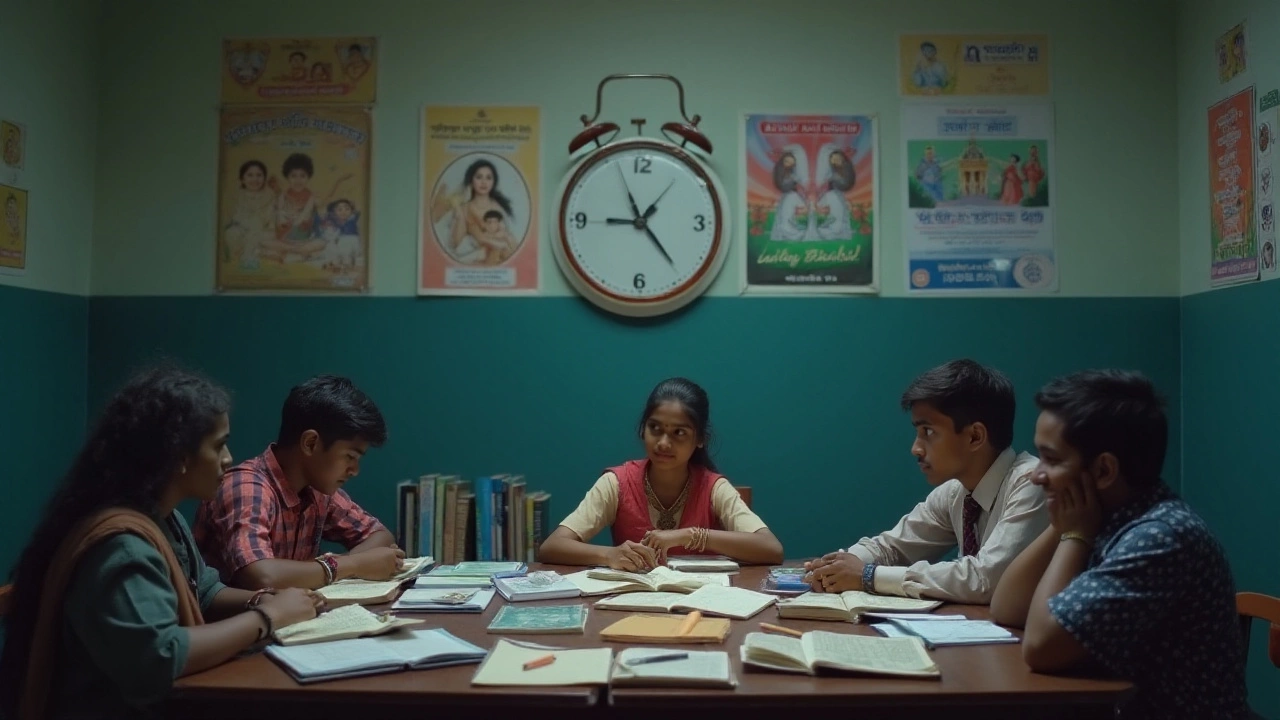So, you've heard of open competitive exams, but what are they really? It's all about who can do the job best. Imagine a race where only your skills, smarts, and determination matter. These exams are like an open playing field, where each person has the same shot at proving they're the right one for the gig.
Curious about how they tick? Well, they work by comparing candidates' skills and aptitudes against each other. It's fair game, everyone starts on equal footing, which makes them a great option if you're confident in your abilities. But remember, it's not just about showing up. You need to prep like a pro.
- The Basics of Open Competitive Exams
- How Do They Work?
- Who Should Consider Them
- Common Myths Busted
- Success Tips and Strategies
- What to Expect on Exam Day
The Basics of Open Competitive Exams
Alright, let's break down what open competitive examinations are all about. Think of them as a job audition, but one where you get tested on paper or online. These exams are used to recruit people for jobs in government agencies, public sector organizations, and even some private companies.
The cool thing about open competitive exams is that it's all about merit. No matter where you come from or who you know, if you make the highest score, you're at the top of the list. That's because these exams are designed to assess your skills and knowledge without any bias. They usually cover areas relevant to the job—stuff like language skills, math, logical reasoning, or whatever is needed for the specific role.
Now, you might wonder how these differ from other tests. Well, rather than just getting a certificate or a pass mark, you're competing against everyone else taking the exam. It's like leveling up in a video game; the better you perform, the higher you rank on the eligibility list.
When you're gearing up for one of these exams, keep in mind that you're not only tested on straightforward knowledge but also on your ability to apply it. Some exams might even test your critical thinking through problem-solving questions.
Preparation is key. Since these exams are designed to pinpoint the best among many, the questions can be quite challenging. It's about outsmarting not just the questions but also the competition. Good preparation isn't just about mugging up a textbook but understanding concepts, practicing regularly, and refining test-taking strategies.
How Do They Work?
Alright, let's break it down. At the heart of an open competitive examination is the idea of fair play and merit-based selection. It's a process where your performance can land you the job, whether it's a spot in a public service role, a government position, or other competitive fields.
Here's how it typically unfolds: First, a bunch of candidates sign up for the exam. There’s usually no limit on how many people can take part, making it truly inclusive. It's like when you enter a local running race, it doesn't matter if there are five people or fifty, everyone gets a chance to compete.
These exams are usually advertised publicly so that anyone who meets the basic qualifications can apply. Once applications are in, the exam may be conducted in different stages. Imagine different levels in a video game, and you need to beat each one to move forward.
The first stage often involves a written test that measures knowledge relevant to the field. After that, there might be a hands-on task or even an interview if you get through the initial round. Some professions might entail a physical test as well, depending on what's required for the job.
Here’s a nugget of wisdom—sometimes these exams are scored on a curve. That's fancy talk for everyone's results are considered together to decide the top scores, instead of going by an absolute score. This makes it super important not just to do well individually but to be aware of the competition.
Want a quick peek at how challenging these can be? Take, for example, a popular civil service exam. There might be tens of thousands of applicants for just a small number of open positions. In fact, a study tips guidebook might note that less than 5% of test-takers may actually secure these roles. Intense, right?
This whole process ensures that positions are filled by those best suited, based on their demonstrated abilities rather than connections or other factors. So, anyone from any background gets the same shot if they can prove they've got the right stuff.
Who Should Consider Them
Wondering if jumping into an open competitive examination is for you? Well, if you thrive on challenges and love proving your skills, this might be your thing. These exams are perfect for go-getters who enjoy showing what they’re made of. It’s all about demonstrating your talent on a level playing field.
Consider this: these exams are a great choice for people who are confident in their competencies, particularly if you've got the know-how and determination. If you’re tired of waiting around for a break and want to make things happen yourself, competitive exams are your ticket. Plus, they are popular in public sectors and civil services where merit-based hiring is key.
This path is also well-suited for folks who have been prepping and honing skills over time. Those who are into structured studying, practice tests, and self-improvement will find this approach rewarding. Also, if you can keep your cool under pressure, you're halfway there.
Of course, anyone looking to switch fields or start fresh could consider this route as well. Open competitive exams can be a gateway to new opportunities that don't necessarily require years of experience in that field, just the right aptitude and study.
In short, if you're the type who loves demonstrating true capability and reaping rewards based on real skills, then these exams might just be your playground.

Common Myths Busted
When it comes to open competitive examinations, there's a bunch of misconceptions floating around that can really mess with your head. Let's clear them up so you can focus on what actually matters.
First off, some folks think these exams are only for brainiacs. That's just not true. Sure, they test your knowledge and skills, but anyone can do well if they put in the effort and prepare the right way. It's about consistent effort and smart preparation, not just raw intelligence.
Another myth is that only fresh graduates can succeed in these exams. Again, not the case. People from diverse backgrounds and experiences can also shine in these exams. It’s about how well you can understand and apply the material, not how long ago you graduated.
Oh, and there's this big one: Some folks believe that everything will be like the end of the world if you don't pass at first try. While passing on the first go is great, it's genuinely common to keep trying and eventually succeed. It's part of learning, and each attempt makes you stronger.
There's also the myth that study tips and exam strategies are just overhyped. If anything, they're gold. Having a plan on how you'll tackle the subjects, knowing your weak spots, and working on them smartly—that's what turns the tide in your favor.
Finally, don’t fall for the idea that these exams are all about crunching numbers or memorized facts. Critical thinking, application, and understanding concepts are key. If you go in thinking it's just another trivia quiz, you'll miss out on what's truly being tested.
Busting these myths is the first step to owning your preparation and walking into that exam room with confidence. Remember, myths only have power if you believe them. Stay informed, stay prepared, and let your hard work do the talking.
Success Tips and Strategies
Tackling open competitive examinations might seem like a mountain at first, but with the right plan, it's totally climbable. Let's break it down with some practical steps that'll help you shine on D-day.
First things first, know what's on the exam and tailor your study plan around it. Dive into past papers and familiarize yourself with the question patterns. They can give you a pretty good idea of what the examiners are looking for.
Creating a study schedule is non-negotiable. You don't want to cram all night before the test. Spread out your workload evenly, and if possible, try out different learning techniques like flashcards or group studies to keep things fresh.
Practice, practice, practice. We can't stress this enough. The more you practice, the more at ease you'll feel when you finally take the real exam. Mock tests are your best friends here—they keep you in check and help identify weak spots.
On the health front, don’t underestimate the power of good sleep and a balanced diet. They massively impact your ability to concentrate and retain information. Try to sneak in some exercise too—it doesn't just keep you fit, it perks up your mood and focus as well.
And finally, when the day of the exam arrives, keep calm. Manage your time wisely during the test. Prioritize the questions you know but don't get stuck on the tricky ones. Sometimes, coming back to them later with a fresh perspective helps.
Got that all down? With these strategies in your toolkit, you're all set to ace that test!
What to Expect on Exam Day
Alright, exam day is finally here. It's normal to have those butterflies, but knowing what's ahead can help you tackle it calmly and confidently. Open competitive examination day is pretty straightforward, and we'll walk through what’s typically involved.
First things first: time is everything. Check the time and location of your exam well in advance. Arrive early to avoid any last-minute stress. You'll need a valid ID and any required documents, so have these ready the night before.
Once you're in, you're usually directed to a seat in a quiet and controlled environment. No distractions, just you and your test papers. There might be a few official instructions read aloud—pay attention, as they might contain crucial info about the exam.
Remember this quote from a wise educator:
"The key to success in exams is planning, preparation, and pacing yourself wisely." - Dr. Stevens, Exam StrategistIt's golden advice that applies perfectly here.
Most exams follow a standard pattern, with sections divided by subjects or skills. Manage your time wisely, focusing more on sections you find challenging. Keep a wristwatch (if allowed) handy to pace yourself without constantly checking the wall clock.
- Focus on your strengths: Begin with questions you’re sure about to build confidence.
- Stay calm and collected: If you hit a tough question, move on and come back later.
Some tests might also have an online format. If that’s the case, you’ll be using computer stations with limited access to ensure everything's fair. Bring necessary tech skills, like typing efficiently and navigating software smoothly.
In terms of results, a good number of centers process them electronically, which speeds things up. You'll likely receive your results sooner than the old pen-and-paper methods.
Prepare for the unexpected—maybe a power outage or a technical glitch. Stay adaptable, and if something unusual happens, don’t hesitate to alert a proctor.
Being mentally prepared for what’s to come can really boost your performance. So, embrace the day with all the prep and positivity you’ve got. You’ve worked hard for this, now it’s show time!



